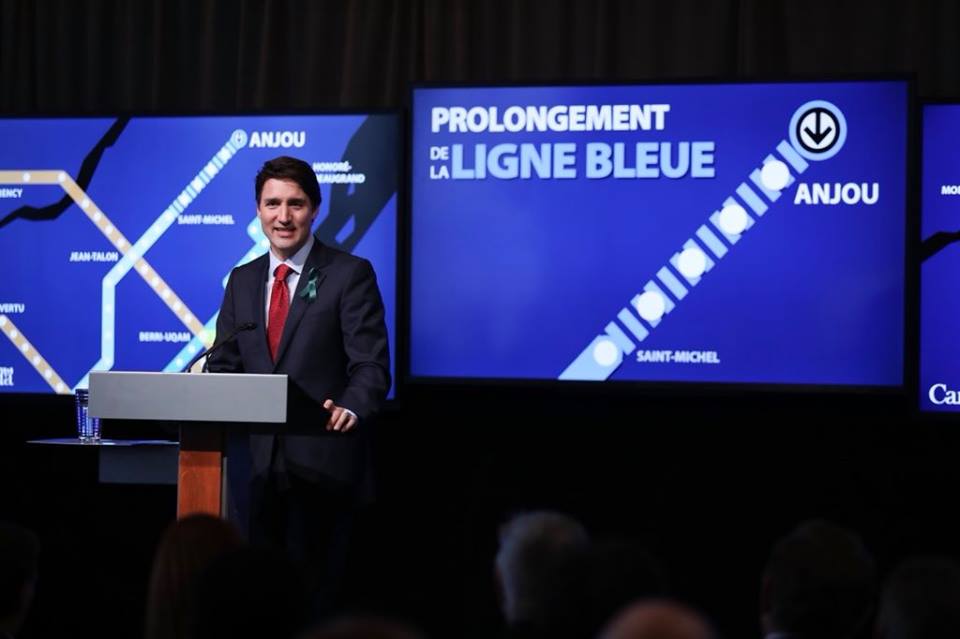
OTTAWA — The future of resource development across Canada depends on the federal government responding correctly to a court ruling that has stalled the Trans Mountain pipeline expansion, Justin Trudeau said Friday.
The government’s response is about more than just one pipeline project, the prime minister said as he took part in what was billed as an armchair discussion at a business gathering in Ottawa.
“What we need is not just this pipeline,” Trudeau said.
“We need to be able to build resource projects of all different types with appropriate social license.”
The Trudeau government approved the Trans Mountain expansion in November 2016, subject to dozens of conditions. But the Federal Court of Appeal quashed the approval last week, citing insufficient consultation with Indigenous communities and failure to assess the environmental impact of more tanker traffic off British Columbia’s coast.
The Conservatives and New Democrats both have blamed Trudeau for the ruling, accusing him of relying on “botched” consultations to further the pipeline project, which would bring more Alberta oilsands crude to port in B.C. for export overseas.
But Trudeau said the decision must be seen in a broader context if the government is to ensure that Trans Mountain — and other resource projects — don’t get bogged down in endless court battles in the future.
Trudeau also fired back at critics who accuse his government of being unable to get large resource projects built, pointing to one major development that has already been approved in Canada, but is facing roadblocks south of the border.
“The Keystone XL pipeline has been approved in Canada for a long time and it’s bogged down in processes in the United States because, again, there are concerns that they hadn’t done enough around consultations in partnership with communities and environmental science,” Trudeau told the gathering.
“This is the way the world is going, and if we can demonstrate clarity and certainty for business through the processes to the investors, we will be able to get more built.”
The opposition parties called on the Liberal government Friday to study the Trans Mountain court decision, and use it to better define what it means to truly consider the wishes of Indigenous communities before it launches into any new consultations over the project.
The Liberals promised a new process for consultation with Indigenous communities during the last election campaign, “and that promise was completely broken,” New Democrat MP Rachel Blaney said before introducing a motion that would see the Commons committee on Indigenous and northern affairs call witnesses to examine why the court rejected cabinet’s approval of Trans Mountain.
Her motion, along with a similar one introduced by Conservative MP Cathy McLeod, was voted down by Liberal members of the committee. The Liberals didn’t speak to the motions and gave no reasons for rejecting them before adjourning.
Trudeau called the court ruling “frustrating” and “devastating” for communities that were relying on the employment that would come with the Trans Mountain project.
The court’s decision, and the Liberal government’s silence surrounding its plan for responding to it, has created a “crisis of confidence” across Canada’s business community, Conservative MP Kevin Waugh told the Commons committee.
“Thousands of jobs in this country have been lost, not only in Alberta and B.C., but throughout this country,” said Waugh.
“When will we know that we have a future in this pipeline?”
The prime minister said earlier this week that his government was looking at legislative and other options as it formulated a response to the decision, including an appeal to the Supreme Court of Canada.
The government agreed in May to purchase the existing pipeline, which has been in operation since the mid-1950s, and other related assets from Kinder Morgan for $4.5 billion.
Company shareholders voted last week to approve the sale. It’s expected to cost at least $7 billion more to construct the twin pipeline, which would nearly triple the system’s capacity from its current flow of 300,000 barrels per day.